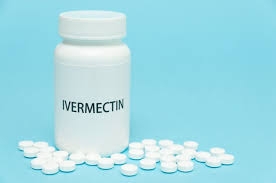Can ivermectin reduce cholesterol?

Ivermectin Iverheal 12mg is a well-known antiparasitic medication, widely used for treating conditions such as onchocerciasis (river blindness), scabies, and strongyloidiasis. Over the years, its potential off-label uses, including antiviral and anti-inflammatory properties, have sparked curiosity in the scientific community. Recently, there has been interest in whether ivermectin Iverheal 6mg can influence cholesterol levels, a critical factor in cardiovascular health.
In this blog, we will delve into the science behind ivermectin and its potential effects on cholesterol, examining existing research, theoretical mechanisms, and practical considerations.
Understanding Cholesterol and Its Impact on Health
Cholesterol is a fatty substance that circulates in the bloodstream. It plays an essential role in cell membrane structure, hormone production, and bile synthesis. However, elevated levels of low-density lipoprotein (LDL), often termed “bad cholesterol,” can lead to plaque buildup in arteries, increasing the risk of heart disease and stroke.
On the other hand, high-density lipoprotein (HDL), known as “good cholesterol,” helps remove excess cholesterol from the bloodstream. Maintaining a balance between LDL and HDL is vital for cardiovascular health.
Managing cholesterol levels typically involves lifestyle changes, such as diet and exercise, and, in some cases, medications like statins. Could ivermectin join this list as a cholesterol-lowering agent?
Theoretical Mechanisms: How Ivermectin Might Affect Cholesterol
While ivermectin is primarily an antiparasitic agent, its broad biological effects raise the question of whether it could impact lipid metabolism and cholesterol levels.
-
Anti-Inflammatory Properties
Chronic inflammation is a key driver of atherosclerosis, the condition in which cholesterol deposits form plaques in arteries. Ivermectin has shown anti-inflammatory effects in various studies, potentially reducing the inflammatory processes associated with high cholesterol levels. -
Impact on Lipid Transport
Some animal studies suggest that ivermectin might influence lipid metabolism by modulating certain proteins involved in cholesterol transport. For example, it may affect LDL receptor activity, promoting the clearance of LDL cholesterol from the bloodstream. -
Microbiome Interaction
The gut microbiome plays a crucial role in cholesterol metabolism. Ivermectin, which interacts with intestinal parasites and potentially affects gut flora, might indirectly influence cholesterol absorption and synthesis. -
Cellular Mechanisms
Preliminary research indicates that ivermectin might interact with molecular pathways related to lipid regulation, such as those involving peroxisome proliferator-activated receptors (PPARs), which are critical in fat and cholesterol metabolism.
What Does the Research Say?
Despite these theoretical mechanisms, clinical evidence on ivermectin’s role in cholesterol management is limited. Here’s what the current research indicates:
-
Animal Studies
A few studies on animal models have observed changes in lipid profiles following ivermectin administration. For example, one study in rodents noted a reduction in serum LDL levels and an increase in HDL levels. However, these findings are preliminary and may not directly translate to humans. -
Human Studies
There is a lack of robust clinical trials investigating ivermectin’s effects on cholesterol levels in humans. Anecdotal reports and small-scale studies have hinted at potential benefits, but these findings require further validation through larger, controlled trials. -
Off-Label Uses and Observational Data
In some observational studies, patients using ivermectin for other conditions reported slight improvements in lipid profiles. However, these results are not conclusive and could be influenced by other factors, such as concurrent medications or lifestyle changes.
Potential Benefits and Risks
If ivermectin were proven effective in reducing cholesterol, it could offer several benefits:
- Cost-Effective Option: Ivermectin is relatively inexpensive compared to some cholesterol-lowering drugs.
- Dual Benefits: Patients with parasitic infections and high cholesterol might benefit from a single treatment.
However, there are also risks and limitations:
- Lack of FDA Approval for Cholesterol: Ivermectin is not approved for managing cholesterol, and using it off-label for this purpose carries risks.
- Potential Side Effects: While generally well-tolerated, ivermectin can cause side effects like dizziness, nausea, and, in rare cases, neurological symptoms.
- Insufficient Evidence: Without large-scale studies, it is premature to recommend ivermectin for cholesterol management.
Practical Considerations
For individuals seeking to manage cholesterol levels, proven strategies remain the best approach:
- Healthy Diet: Focus on consuming fruits, vegetables, whole grains, and lean proteins while limiting saturated fats and trans fats.
- Regular Exercise: Physical activity can help raise HDL levels and lower LDL levels.
- Medications: Statins, bile acid sequestrants, and other cholesterol-lowering drugs are clinically validated options.
If you are interested in exploring ivermectin for any off-label use, consult your healthcare provider to discuss potential risks and benefits.
Future Directions
The question of whether ivermectin can reduce cholesterol levels is intriguing but remains unanswered. As researchers continue to explore ivermectin’s broader applications, more studies may shed light on its potential role in lipid metabolism and cardiovascular health.
Until then, it is essential to rely on evidence-based treatments and maintain open communication with your healthcare team about any new therapies or approaches.
Conclusion
While ivermectin shows theoretical promise in influencing cholesterol levels through anti-inflammatory and lipid-regulating mechanisms, the current evidence is insufficient to support its use as a cholesterol-lowering agent. More rigorous clinical trials are needed to determine its safety and effectiveness in this context.
For now, focus on proven lifestyle changes and medications to manage cholesterol, and consult your doctor before considering any alternative treatments. Your health and safety should always come first
- Questions and Answers
- Opinion
- Motivational and Inspiring Story
- Technology
- Live and Let live
- Focus
- Geopolitics
- Military-Arms/Equipment
- Security
- Economy
- Beasts of Nations
- Machine Tools-The “Mother Industry”
- Art
- Causes
- Crafts
- Dance
- Drinks
- Film/Movie
- Fitness
- Food
- Games
- Gardening
- Health
- Home
- Literature
- Music
- Networking
- Other
- Party
- Religion
- Shopping
- Sports
- Theater
- Health and Wellness
- News
- Culture

